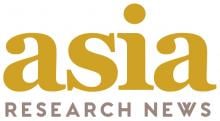United Kingdom
News

28 Nov 2006
A pioneering international alliance that aims to ensure that poor people in Africa and Asia get a greater share of the benefits from local forests will hold its first full meeting in Uganda next week.

26 Nov 2006
Governments meeting this week are being urged to take a new approach to intellectual property rights to reflect the needs, customs and views of indigenous communities in developing nations.

26 Nov 2006
Summaries of newsworthy papers from Nature and Nature Research Journals include Prime cuts – Nature Immunology and A new tool to analyze bacteria in microbial ecosystems – Nature Methods

23 Nov 2006
Summaries of newsworthy papers include Protein monitors arrested eggs for DNA damage, Mount St Helens rock causes ‘drumbeats’, Drug promise for renal disease, By their teeth ye shall know them, Corals take a battering, Watching proteins unfold, Superconducting silicon, Hessian ware recipe

23 Nov 2006
A revolutionary free scientific recruitment initiative has been launched under the new brand of naturejobs.com by Nature magazine, the premier science journal.

20 Nov 2006
As the Shoklo Malaria Research Unit in Mae Sot, Thailand, celebrates its twentieth anniversary, Prof Francois Nosten reflects on the success of the unit, based amongst the region's refugee camps.

19 Nov 2006
Summaries of newsworthy papers include Nanomaterials for imaging and therapy – Nature Materials, High times for memory – Nature Neuroscience, An unexpected mechanism of pain – Nature Neuroscience, Auditory repetition and dyslexia – Nature Neuroscience

16 Nov 2006
The December issue of Nature Immunology presents a Focus on special immune proteins that detect the presence of invading pathogens in various hosts. The Focus will go live on 16 November at http://www.nature.com/ni/focus/innateproteins/.

15 Nov 2006
A detailed analysis of Neanderthal DNA provides a unique insight into the genetic changes that accompanied the transition from early hominid to modern man. The study, reported in this week’s Nature, paves the way for a Neanderthal genome-sequencing effort.

15 Nov 2006
Researchers have discovered two mutations in the H5N1 avian influenza virus that enable it to recognise human receptor proteins. The amino acid changes, might prove useful molecular markers for assessing the pandemic potential of H5N1 samples.

15 Nov 2006
Treatments for muscular dystrophy, Five grand challenges for safe nanotechnology, Predicting the endpoint of earthquake ruptures, Infant burial by early modern humans, Discovery may help defeat gypsy moth, Flushing submarine canyons, Graphene in a spin

12 Nov 2006
Summaries of newsworthy papers include Molecule required for bone repair identified – Nature Genetics, Problems with a potential Alzheimer disease treatment – Nature Neuroscience

08 Nov 2006
Climate change: New Antarctic ice core yields detailed climatic insights, Infectious disease: SIV endemic in wild gorillas?, Neuroscience: How to keep a steady eye, Astronomy: Moon’s surface shaped by ‘recent’ gas release? and finally… Chillies and spiders share similar scare tactics

06 Nov 2006
The Environment is a major concern in many Asian countries. ResearchSEA is launching Focus on The Environment to highlight the experts and research related to the Environment.

06 Nov 2006
The eye can provide a very reliable way of diagnosing cerebral malaria, researchers in Malawi have shown. By looking at the changes to the retina, doctors are able to determine whether an unconscious child is suffering from this severe form of malaria or another, unrelated illness, leading to the most appropriate treatment.

05 Nov 2006
Summaries of newsworthy papers from Nature and Nature Research Journals include: DNA sequencing reveals bacterial evolution in the lab, Kidney disease caused by mutation may be reversible, Benefits of fever, Redefining receptor organization – again.

03 Nov 2006
More than one hundred Nobel laureates have written to Colonel Muammar al-Gaddafi to express their concern over the death-penalty case of 5 Bulgarian nurses, and a Palestinian doctor, accused of deliberately infecting more than 400 children with HIV in 1998.

01 Nov 2006
An unprecedented look at the prospects for science and technology in the Muslim world is offered in Nature's News section this week.

01 Nov 2006
Having your cake and eating it too, ‘Silver bullet’ strategies due a rethink, Rock-solid support for ‘Snowball Earth’ theory, The benefits of sleeping around, Tiny mirrors chill out, New sonic hedgehog receptor, Maize fungal genome deciphered, ‘Export’ protein structure unveiled, Policing every egg you lay

29 Oct 2006
Magnetic cooling demonstrated in a gas, A step towards quantum networks, Seeing the benefits of nanoceria, A potential male contraceptive, Towards a complete human ‘epigenome’, Small RNAs drive evolution, Genetic risk for schizophrenia and brain function, Knocking out false positives in interaction proteomics

26 Oct 2006
Should willing individuals be allowed to sell their kidneys? Yes, according to a Viewpoint article in Nature Clinical Practice Nephrology, which argues that failure to regulate kidney sales could be unethical. Abdallah S Daar asserts that the traditional moral arguments against payment for organs are difficult to sustain under close scrutiny.

25 Oct 2006
Nuclear forensics, Global cooling preceded life on Earth, DNA degradation link to rheumatoid arthritis, Lampreys, the supreme survival specialists, The conductivity of mantle minerals, Largest avian skull runs rings around agility theory

25 Oct 2006
A new technology that mimics the suspension of white blood cells in blood in the body is reported online this week in Cell Research. The novel joystick-controlled laser traps that the authors use provide valuable new information on how white blood cells engulf bacteria – a crucial part of the body’s defense against infection.

22 Oct 2006
Summaries of other newsworthy papers from Nature include Inducing connections between brain sites alters motor function - Nature, The bottom line for silk - Nature Materials, Bittersweet news for neural stem cell grafts - Nature Medicine, TAPping into mammalian interaction proteomics - Nature Methods

20 Oct 2006
People around the world can access information about harmful introduced species easier than ever thanks to the September 2006 launch of a new website for the Global Invasive Species Database (GISD).

19 Oct 2006
The culture conditions under which human embryonic stem cells can be converted into cells that produce all five hormones made by the pancreas, including insulin, are reported online in Nature Biotechnology this week.

18 Oct 2006
Science issues could play a key role in the US mid-term elections, says a news feature in this week’s Nature. Reporters have teamed up to scrutinize races across the country and report how two topics in particular – stem cells and energy – are being used on the campaign trail.

18 Oct 2006
‘Linguistics’ spawns new antimicrobial drugs, Stop picking on the big guys, Moon's south pole unlikely to have thick ice deposits, Bang on in the Andromeda galaxy, Cancer stem cells resist radiotherapy, Primitive fish surprisingly advanced, Neurodegeneration, Two pores colliding, Getting to the roots of the fungal family tree.......

15 Oct 2006
As more people look to weight loss surgery to address their expanding waist lines, new research suggests that the best way to drop a few dress sizes is to opt for the mini - as in mini-gastric bypass surgery.

15 Oct 2006
LONDON – The International Journal of Surgery proudly announces the launch of its new open access website www.theijs.com.
Researchers
Sorry, no researchers coming up for this topic.
Giants in history
Sorry, no researchers coming up for this topic.

